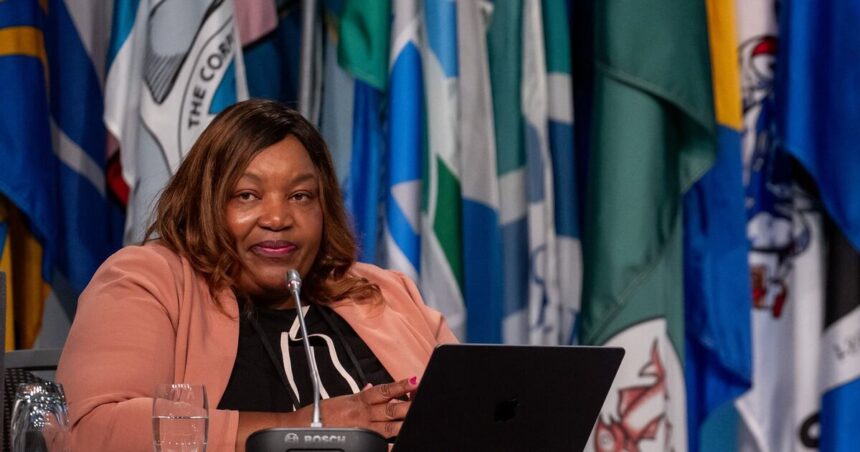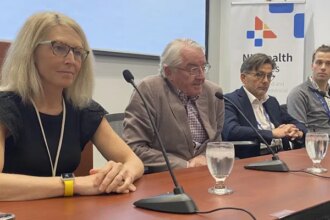The atmosphere was tense in Vancouver’s waterfront convention center Monday as municipal leaders from across British Columbia confronted escalating crises of homelessness and public disorder that have transformed communities throughout the province. With encampments expanding beyond major urban centers into smaller communities, and residents increasingly voicing safety concerns, the urgency was palpable as the Union of BC Municipalities (UBCM) convention commenced its five-day session.
“We’ve reached a breaking point where the visible manifestation of our social failures can no longer be contained to specific neighborhoods,” said Nanaimo Mayor Leonard Krog, whose mid-sized Vancouver Island community has witnessed a 46% increase in homeless populations since 2023. “These aren’t just Vancouver or Victoria problems anymore—they’re British Columbia problems.”
The annual gathering, bringing together over 1,800 elected officials and municipal staff, has traditionally focused on infrastructure and economic development. This year, however, the spotlight has firmly shifted to what many delegates describe as a “perfect storm” of affordable housing shortages, mental health service gaps, and substance use challenges that have dramatically altered public spaces.
Housing Minister Ravi Kahlon acknowledged the gravity of the situation during his opening remarks, unveiling a $220 million provincial investment package aimed at rapid supportive housing development. “We recognize municipalities cannot shoulder these complex social issues alone,” Kahlon stated. “This funding represents our commitment to a coordinated approach that respects local autonomy while providing tangible resources.”
Despite the announcement, frustration remained evident among many attendees. Several rural mayors pointed to the lack of specialized mental health services in their communities, forcing vulnerable residents into larger centers where they frequently end up homeless.
“We send people away for treatment, and they never come back to our communities,” explained Christina Lake Councillor Donna Shugar. “When smaller communities lose residents to larger centers where they become street-entrenched, everybody loses.”
The conference has also highlighted growing tensions between compassion-focused approaches and public safety concerns. A significant contingent of delegates, representing communities where residents and businesses report feeling unsafe, pressed for stronger law enforcement measures alongside social supports.
“Our businesses are suffering, our public spaces feel threatening to many residents, and we’re caught in an impossible position,” said Prince George Mayor Simon Yu. “We need solutions that balance human dignity with the legitimate expectation that downtown cores remain viable and safe.”
Data presented during afternoon sessions painted a troubling picture: encampment-related fires have increased 78% province-wide since 2023, while emergency room visits connected to untreated mental health conditions have risen by nearly 60% in the same period, according to Provincial Health Officer Dr. Bonnie Henry.
The provincial government’s approach faces criticism from both advocacy organizations and opposition politicians attending the conference. Housing advocates argue the new funding, while welcome, represents merely “band-aid solutions” to structural problems requiring billions in long-term investment.
BC Conservative opposition leader John Rustad countered from another direction, calling for increased enforcement powers for municipalities dealing with entrenched encampments. “Local governments need clear authority to maintain public order while provincial and federal partners address the underlying causes,” Rustad told delegates during an afternoon session.
Premier David Eby is scheduled to address the convention Wednesday, with many attendees anticipating announcements of additional measures focusing on mental health services and addiction treatment options. Sources within the Premier’s office suggest a significant expansion of complex-care housing may be forthcoming.
As delegates networked at evening receptions, the conversations revealed both determination and weariness. “We come to these meetings year after year, discussing the same issues with increasing urgency,” reflected Victoria Councillor Sarah Henderson. “The difference now is that these problems have spread to communities that previously viewed them as ‘big city issues’—perhaps that will finally create the political will for transformative action.”
With sessions continuing through Friday, municipal leaders face the challenge of translating conference discussions into actionable strategies for their communities. The question hanging over the convention remains: Will this year’s gathering finally produce the coordinated, multi-level government response necessary to address what has become British Columbia’s defining social crisis, or will residents continue to witness the deterioration of public spaces across the province?














